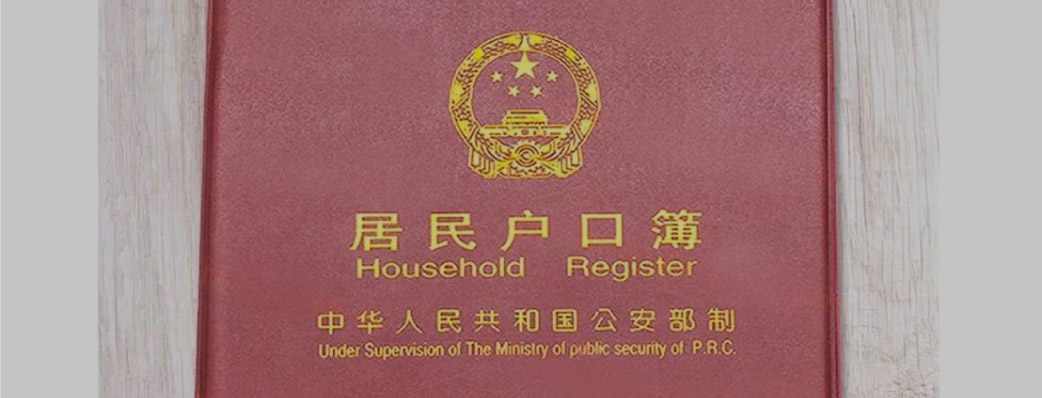What is the Chinese Hukou?
The hukou system in China is the system of household registration that is currently in place, which identifies a person as being a resident of a particular area. As such, the person’s residence is officially recorded as their hukou.
Although the hukou system in China dates back to ancient times, a more modern system was implemented in 1958, in an effort to control the stream of resources that were leaving the agriculture areas and moving to the urban centers. After Deng XiaoPing came into power in 1978, the initiation of reforms moved to bridging the gap of disparity between those who held rural hukou’s and those with urban hukou’s.
Thereafter, gradual reforms occurred from the late 70’s all the way to the early 90’s and again from 1992 – 2013. The current system, which has been in place since 2014 aims to address issues surrounding China’s fast urbanization process.
The hukou system in China requires that all Chinese citizens be registered at birth, with each family member in a family unit being assigned a separate page in the hukou. The hukou contains basic information of a person, including:
- The full name of the person;
- Their registered address;
- Their relationship to the other members of the family;
- Status, i.e. urban or rural;
- Marital status; and
- Origin (even if you are born in a particular place, it contains information on where your family is originally from).

Tired of scrolling? Download a PDF version for easier offline reading and sharing with coworkers
In a hurry? Save this article as a PDF
Tired of scrolling? Download a PDF version for easier offline reading and sharing with coworkers.
Fill up the form below 👇🏼
A hukou differs from a residence permit, as a residence permit is a temporary document that allows a person to be in a particular place and gives them access to certain socio-economic benefits. A further distinction is made between the two, in that the benefits granted for a residence permit are significantly limited than those granted for a Shanghai hukou.
The main purpose of a hukou in China, is to serve as proof of identity and residence. For Chinese residents a hukou is highly important as it determines access to healthcare, education, social welfare and housing.
Check Our China Labor Law Guide
Learn how the Chinese law is applied in all aspects and situations, from an employer and employee perspective

What are the Benefits of a Shanghai Hukou?
Having a Shanghai hukou gives the holder a number of benefits, the most prominent being the access to education, healthcare and housing.
Hukou System in China: Healthcare and Social Security
Each city in China has different medical insurance and social security contributions. If a person is to relocate from one city to another, their contribution in their previous city will not be carried over to the new city. Therefore, if they require medical care and they do not contribute to medical insurance in Shanghai, their medical insurance will not cover a portion of the amount and they will have to pay the total amount due.
China Hukou System and Education
A Shanghai hukou allows for children to attend public school locally. For those who only have a residence permit, their children are able to attend elementary and middle school in Shanghai, however they would have to return to their hometown for high school.
Furthermore, major cities in China, such as Shanghai and Beijing, boast some of the best universities in the country. These universities have limited space, and as such, students with a local hukou may have preference over those from other cities.

Hukou System and Housing in Shanghai
The cost of housing in a city such as Shanghai is exceptionally high. Strictly speaking, it is possible for people from other cities to purchase property, however, a bank loan will not be granted to those who do not have a Shanghai hukou, thus making it impossible for most.
Property in Shanghai is also highly sought after, as the value and return on investment will increase far greater than the value of property in other cities.
How to Get a Shanghai Hukou?
The Shanghai local government has implemented guidelines, outlining who can apply for a hukou, which include:
- Talented Individuals – those who have a strong educational background, possess expertise in a particular field or hold a position of seniority in a large company;
- Investment – those who make a significant investment in Shanghai;
- Transfer of Work Permit – this is for white collar professionals who reside and pay tax for a period of 5-7 years, they are able to apply for their hukou to be converted; and
- International Graduates – those Chinese students, who have studied abroad at a world renowned university, and upon returning to China, their first job is in Shanghai. Such students would need to have obtained a qualification in a specific field considered important by the Chinese government.
Additional Considerations
As not every person that meets the above conditions, will be granted a Shanghai hukou, the Shanghai local government has outlined some further considerations. These considerations are intended to make it easier for an applicant and include inquiries into an applicant’s social contributions, field of work and tax payments.
Although the hukou system in China has been around for centuries, it has been evolving to address freedom of movement for persons to move from rural areas to urban centers. The continued implementation of hukou is to address the problems that can occur with rapid urbanization. With more than 50,000 Shanghai hukou’s being approved in the past 3 years, it is clear that the Shanghai government will continue to award the Shanghai hukou to many more in the foreseeable future.
A PEO Company might help you to know all the nuances.

SHARE